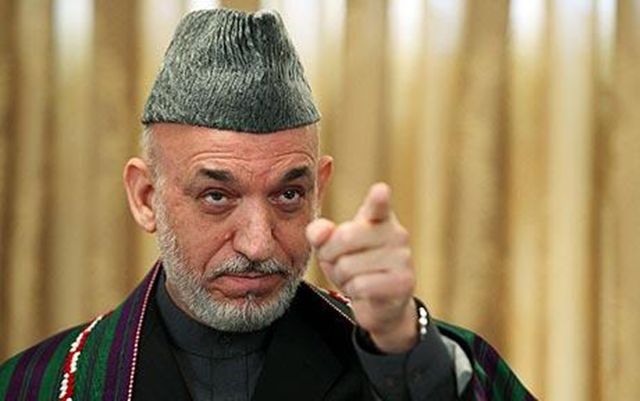
Negotiating an Endgame in Afghanistan: Qatar Hosts the Taliban
Publication: Terrorism Monitor Volume: 10 Issue: 4
By:

As the insurgency in Afghanistan rages on, recent events appear to confirm earlier reports pointing to a U.S. interest in taking the once inconceivable step of engaging the Taliban in negotiations (see Terrorism Monitor, November 25, 2008; Terrorism Monitor Brief, February 11, 2010). Washington is setting its sights on withdrawing most, if not all, of the 130,000 troops it commands under NATO auspices when Kabul assumes responsibility for Afghanistan’s security in 2014. Despite the chronic violence and instability that endures in Afghanistan, the U.S. administration looks to harness the killing of al-Qaeda leader Osama bin Laden and domestic concerns revolving around economic issues in an election year to extricate itself from what is now the longest war in American history. In doing so, the administration recognizes the tremendous influence the Taliban wields across Afghanistan – militarily, culturally, politically, and economically – as well as in Pakistan. Amid questions surrounding the nature of its motivations, Qatar – a U.S. ally whose rising diplomatic star continues to confound close observers of Middle East politics, has positioned itself to serve as an interlocutor to initiate preliminary talks between the warring parties on Washington’s behalf.
Reports that U.S. Special Envoy to Afghanistan and Pakistan Marc Grossman met with representatives of the Afghan Taliban in Qatar in January to explore the prospect of opening a dialogue with the insurgent movement remain fraught with speculation. A delegation of ranking Taliban members, including Tayyab Agha, a former secretary to Taliban leader Mullah Muhammad Omar, former Taliban foreign minister Shir Muhammad Abbas Stanekzai and former Taliban ambassador to Saudi Arabia Shabuddin Delawar traveled to Doha in January to establish a formal office in the Persian Gulf emirate (Telegraph [London], January 26; Tolo News [Kabul], January 28; The News International [Islamabad], January 28). The allegation that Grossman met with the Taliban officials in Doha originated from a senior Afghan official who spoke anonymously due to the sensitive nature of the subject (AFP, February 8). Grossman recently toured Afghanistan, Turkey, Saudi Arabia, the United Arab Emirates, India, and Qatar to tout a plan to initiate comprehensive peace and reconciliation talks to end the war in Afghanistan. Pakistan, a critical piece in the Afghan puzzle, rebuffed a U.S. request to have Grossman visit the country amid heightened tensions between Washington and Islamabad (al-Jazeera [Doha], January 18). The United States has refused to comment on Grossman’s alleged meeting with the Taliban. Grossman did, however, laud the Taliban’s decision to establish a presence in Qatar to help advance efforts to end the war, though he qualified his support by adding that the United States wants to see the group condemn terrorism, break with al-Qaeda, and work to support peace in the region (VOA, January 22; Al-Jazeera, January 12).
Playing Politics
In a gesture of diplomatic goodwill, Washington is reviewing a Taliban request that it release five of its leaders currently imprisoned at Guantanamo Bay as a starting point for peace talks (al-Jazeera, January 12; Reuters, February 2). The Taliban is meanwhile doing its part to affirm that it is taking diplomacy seriously: A former ranking Taliban official extolled the credentials of the representatives dispatched to Doha, who he described as well-educated, fluent in English, and “moderate,” but at the same time “committed” to the movement (Telegraph, January 26; The News International, January 28). Lost amid the delicate back channel diplomacy surrounding the future of Afghanistan is the Afghan government’s anger over Qatar’s willingness to host the Taliban diplomats. Afghanistan would later recall its ambassador to Qatar in protest. To counter the Qatari initiative, Afghan president Hamid Karzai suggested that exploratory peace talks be held in a different country, such as Saudi Arabia or Turkey. According to Karzai: “Americans cannot negotiate on our behalf with the Taliban and with us on behalf of the Taliban” (Tolo News, February 17).
Significantly, the Taliban proclaimed its presence in Doha as a declaration of victory over its adversaries (Islamic Emirate of Afghanistan Voice of Jihad, January 15; see also Terrorism Monitor Brief, January 26). The statement announcing the Doha office highlighted the Taliban’s credentials as an organic, capable, and legitimate actor in Afghan politics. The Taliban leadership also appears keen to demonstrate to its supporters and detractors alike that its decision to explore the possibility of entering into peace talks should not be interpreted as a sign of weakness or surrender.
The Taliban statement suggests that the group was always amenable to dealing with matters in a pragmatic and respectful manner:
"Everyone concerned should choose the rational and logical path of solving issues with Islamic Emirate of Afghanistan. If the present invaders had chosen a lucid path instead of incursion, they would not have faced such a huge personnel and financial loss in Afghanistan (Islamic Emirate of Afghanistan Voice of Jihad, January 15)."
Defining the Taliban
Painting an accurate portrait of the myriad competing interests at work in Afghanistan is, by any stretch, a daunting enterprise. The complexity inherent in enlisting the Taliban as a stakeholder at the negotiating table raises important questions about the approach of Washington to Afghanistan. Despite the major differences between the two groups, the United States has often equated the Taliban with al-Qaeda. The ultraconservative variety of Sunni fundamentalism espoused by the Taliban always represented a regional and insular current that operated within the confines of Afghan society. This holds especially true for the ethnic Pashtun population that comprises the Taliban’s main constituency. Al-Qaeda, in contrast to the Taliban, is a transnational activist movement with a global worldview and the Taliban’s alliance with the movement was controversial among many Taliban leaders who disapproved of the relationship.
The Taliban remains a highly fractious movement that is divided along village, tribal, ethnic, and regional lines. As the Taliban builds its presence in Doha, two salient questions arise. First, how does the United States define the Taliban? Second, does the Taliban representation in Doha accurately reflect the larger Taliban current in Afghanistan?
In this regard, the United States faces a series of dilemmas. The United States continues to offer a $10 million reward for information leading to the capture or killing of Mullah Omar. The role of the numerous insurgent groups that rival the Taliban for influence, including the Hizb-i-Islami of Gulbuddin Hekmatyar, Hizb-i-Islami Khalis (HIK) and the Haqqani Network, must also be taken into account. The Haqqani Network, a Taliban ally that has emerged as one of the most lethal threats to U.S. and NATO forces in Afghanistan and Pakistan, strongly opposes negotiating with Washington. Reports have also surfaced alleging that the United States has already reached out to the numerous other insurgent groups operating in Afghanistan.
The Taliban representation in Qatar will likely be able to persuade many of its devotees to adhere to whatever course of action it chooses to pursue as a result of its diplomacy. At the same time, there are indications that segments of the Taliban’s rank-and-file are angry over the decision taken by their leaders to engage with their enemies without consulting them. Many Taliban fighters are determined to reject any compromises with Washington or Kabul made on their behalf in Qatar, including orders to lay down their arms (IWPR Afghan Recovery Report, January 30). The Taliban’s role in facilitating Afghanistan’s lucrative opium trade is almost certain to be near the top of any negotiation agenda. According to the United Nations, opium production levels in Afghanistan in 2011 surpassed previous record highs. Any attempts by the Taliban to curtail the lucrative opium trade as a possible concession to Washington during future negotiations is sure to alienate many of its followers (Khamma Press [Kabul], February 18).
The Question of Pakistan
The rise of the Tehrik-e-Taliban Pakistan (TTP), an assembly of ethnic Pashtun tribal militias based in Pakistan’s northern tribal areas that attempted to replicate the Afghan Taliban on Pakistani soil, has plunged Pakistan into chaos. As much as they share a common ideological pedigree and operational links, it is unclear how the Afghan Taliban’s foray into diplomacy will impact the situation in Pakistan. Washington is certain to craft its demands to the Afghan Taliban with an eye on the deteriorating situation in Pakistan. Yet the evolution of events in Pakistan in recent years shows that the Pakistan Taliban is organic to its surroundings. As a result, the Pakistan Taliban is not likely to follow any dictates issued by its Afghan progenitor it deems contrary to its own interests. That Islamabad continues to view the Taliban in Afghanistan as a crucial ally in the larger context of its rivalry with India adds another layer of complexity to the ramifications of peace talks. Paradoxically, as Pakistan reels from al-Qaeda- and Taliban-inspired militancy within its own borders, it continues to view a Taliban-dominated landscape in Afghanistan as a means to enhance its strategic depth. Islamabad’s support for the Taliban has long been a point of friction between Pakistan and Afghanistan. This reality, combined with the dire state of U.S.-Pakistan relations, means that Islamabad will be projecting itself into the negotiations to ensure that its interests are protected.
Reflecting their shared concerns about Washington’s effort to engage the Taliban in Doha at the expense of the interests of regional actors, Pakistani president Asif Ali Zardari, Afghan president Hamid Karzai, and Iranian president Mahmoud Ahmadinejad used the occasion of the third annual Pakistan-Afghanistan-Iran trilateral summit in Islamabad to call for an Afghan-led peace initiative that is free of foreign intervention (Press TV [Tehran], February 16; The News International, February 19). There is yet the question of how the Taliban will react to U.S. demands regarding its association with al-Qaeda, but as more of al-Qaeda’s members are captured or killed in Afghanistan and Pakistan, the Taliban’s position with respect to al-Qaeda may become less and less important as a host of other pressing issues take precedence.
Conclusion
Given the many variables involved, it is too early to envisage a realistic outcome to any substantive negotiations that may transpire between the United States and the Taliban. The multitude of competing interests in play foreshadows an increase in violence and possibly severe instability in Afghanistan and Pakistan in the months ahead. An agreement to consider the initiation of formal peace talks, even tentatively, is likely to be viewed by the United States, the Taliban, and other critical stakeholders as a rationale to strengthen their respective negotiating leverage in relation to one another. In the framework of Afghanistan, these dynamics are a recipe for further bloodshed before any progress becomes apparent.
Chris Zambelis is an analyst and researcher specializing in Middle East affairs with Helios Global, Inc., a risk management group based in the Washington, DC area. The opinions expressed here are the author’s alone and do not necessarily reflect the position of Helios Global Inc.





